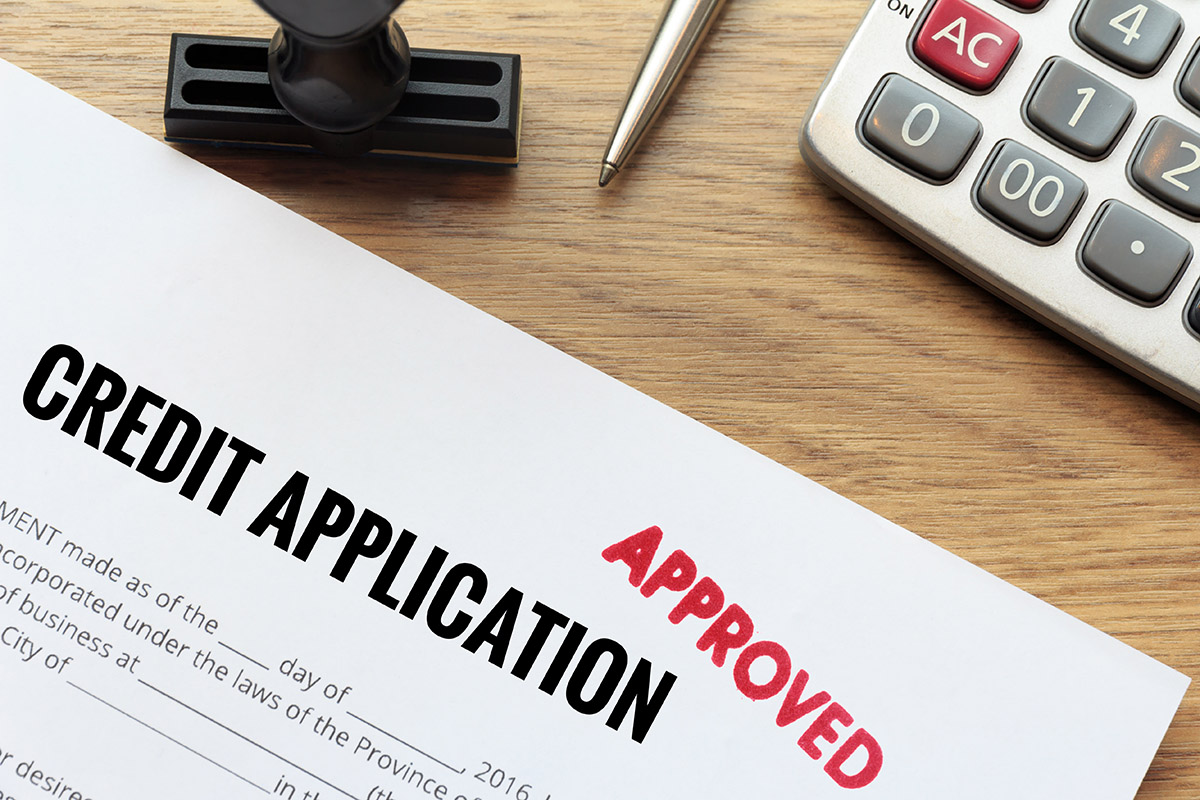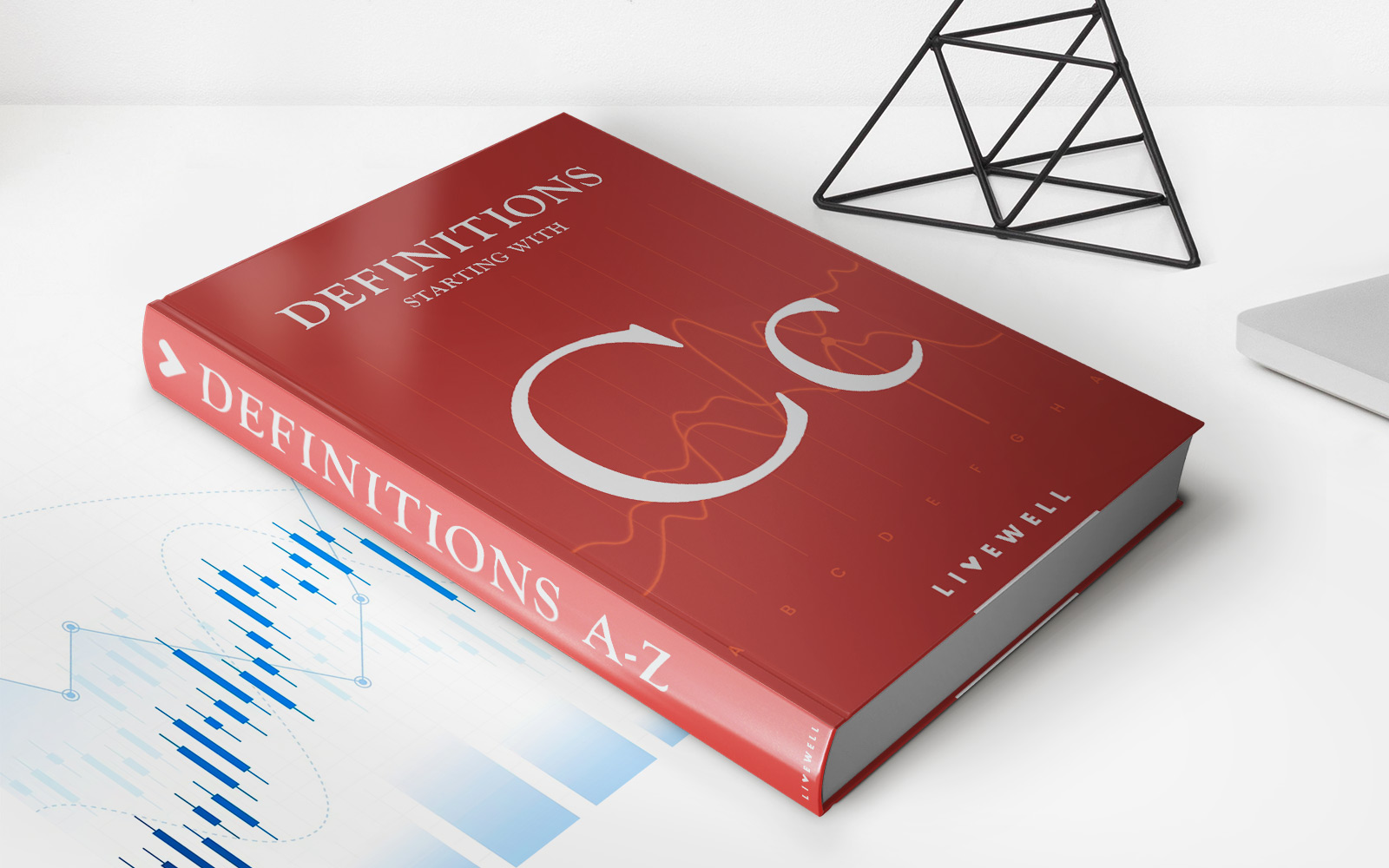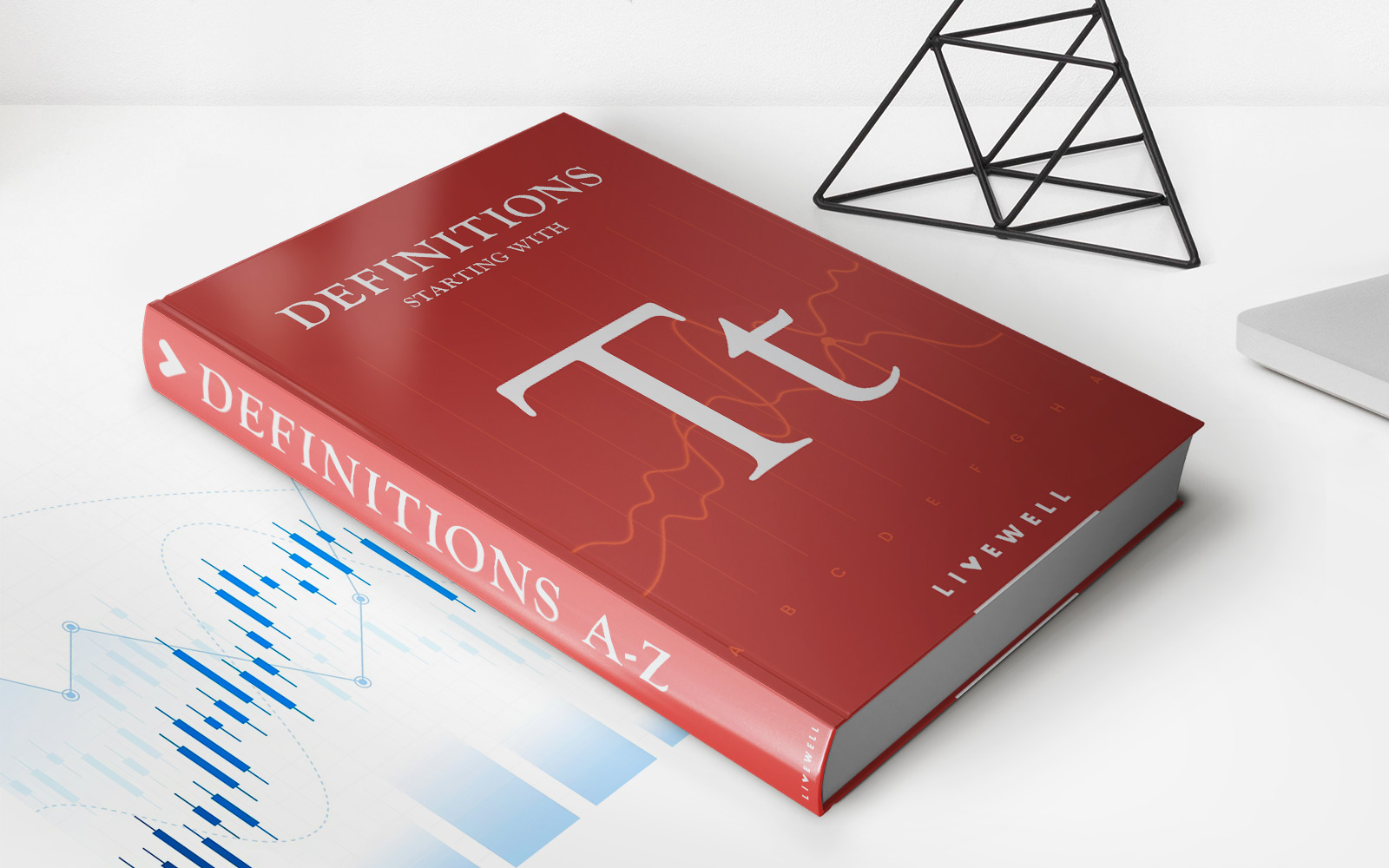

Finance
When Should You Apply For A Second Credit Card
Modified: December 29, 2023
Learn when it's the right time to apply for a second credit card and how it can benefit your financial situation. Explore the advantages and considerations involved in managing multiple credit cards.
(Many of the links in this article redirect to a specific reviewed product. Your purchase of these products through affiliate links helps to generate commission for LiveWell, at no extra cost. Learn more)
Table of Contents
- Introduction
- Benefits of Having a Second Credit Card
- Factors to Consider Before Applying for a Second Credit Card
- When It May Be Beneficial to Have a Second Credit Card
- When It May Not Be Necessary to Have a Second Credit Card
- How to Choose the Right Second Credit Card for You
- Steps to Follow When Applying for a Second Credit Card
- Potential Drawbacks of Having a Second Credit Card
- Tips for Managing Multiple Credit Cards Effectively
- Conclusion
Introduction
Managing your finances effectively is an essential part of a healthy financial journey. One of the tools available to help you achieve this is a credit card. A credit card not only provides you with a convenient way to make purchases, but it also offers various benefits such as rewards, cashback, and fraud protection.
While having a single credit card can be sufficient for most people, there are situations where applying for a second credit card can be beneficial. A second credit card can provide you with additional perks, increased credit limit, and improved financial flexibility. However, it is important to carefully consider whether applying for a second credit card is the right move for you.
In this article, we will explore the benefits of having a second credit card, the factors to consider before applying, and when it may be beneficial or unnecessary to have one. We will also provide tips on how to choose the right second credit card and manage multiple credit cards effectively.
So, if you’re contemplating whether or not to apply for a second credit card, read on to gain insights into making an informed decision that aligns with your financial goals and needs.
Benefits of Having a Second Credit Card
Having a second credit card can offer a range of benefits and advantages. It can significantly enhance your financial flexibility and provide you with additional perks. Here are some key benefits of having a second credit card:
- Reward Programs: Many credit card issuers offer lucrative reward programs that allow you to earn points, cashback, or travel miles on your purchases. By having a second credit card, you can maximize your rewards potential by using different cards for different spending categories.
- Increased Credit Limit: If you have a single credit card, your credit limit may not be sufficient for larger purchases. Having a second credit card allows you to have access to an additional line of credit, boosting your overall credit limit and giving you the flexibility to make bigger purchases when needed.
- Backup and Security: A second credit card serves as a backup in case your primary card is lost, stolen, or temporarily blocked. It ensures that you have an alternate method of payment readily available, providing peace of mind in case of emergencies.
- Specialized Rewards and Benefits: Different credit cards cater to specific needs and interests. For example, some cards offer exclusive rewards for travel, while others focus on dining or shopping. By having a second credit card, you can choose one that aligns with your lifestyle and maximize the benefits that are most important to you.
- Separate Expenses: If you have a second credit card, you can use it specifically for certain expenses, such as business expenses or online shopping. This helps you keep your personal and business expenses separate and allows for easier tracking and budgeting.
These are just a few of the benefits that a second credit card can offer. However, before you apply for a second credit card, it’s important to consider certain factors and evaluate whether it aligns with your financial goals and needs.
Factors to Consider Before Applying for a Second Credit Card
While a second credit card can provide numerous benefits, it’s important to consider certain factors before diving into the application process. Here are some key factors to consider:
- Credit Score: Your credit score plays a vital role in determining your eligibility for a second credit card. Before applying, ensure that your credit score is in good standing, as a low score may result in a higher interest rate or even rejection of your application.
- Income and Financial Stability: Evaluate your current financial situation and determine if you have a steady income to manage multiple credit cards responsibly. Taking on additional credit card debt without the ability to repay can lead to financial stress and potentially harm your credit score.
- Reason for Getting a Second Card: Identify the specific reasons why you want a second credit card. Are you looking to maximize rewards? Do you need a higher credit limit? Understanding your motivation will help you choose a card that aligns with your goals.
- Annual Fees and Interest Rates: Consider the fees associated with the second credit card, such as annual fees and any other charges. Calculate whether the benefits and rewards you will receive outweigh the cost of holding the card. Additionally, pay attention to the interest rates offered by the card issuer, as higher rates can result in expensive debt if you carry a balance.
- Impact on Credit Utilization Ratio: The credit utilization ratio is the percentage of your total credit limit that you are currently using. Adding a second credit card can either improve or harm your credit utilization ratio, depending on how you manage your credit. Ideally, aim to keep your utilization ratio below 30% to maintain a good credit score.
By considering these factors, you can make a well-informed decision about whether applying for a second credit card is the right move for you. Next, let’s explore situations where having a second credit card may be beneficial, as well as situations where it may not be necessary.
When It May Be Beneficial to Have a Second Credit Card
Having a second credit card can be advantageous in several situations. Here are some instances where having a second credit card may be beneficial:
- Rewards and Benefits: If you find yourself spending in different categories such as groceries, dining, or travel, having a second credit card with specific rewards in each category can help you maximize your rewards and earn more points or cashback for your expenses.
- Higher Credit Limit: A second credit card can provide you with an increased credit limit, which can be beneficial if you regularly make larger purchases or want to maintain a lower credit utilization ratio. Additionally, a second card can act as a safety net in case you reach your limit on your primary card.
- Emergency Backup: Having a second credit card provides you with a backup in case your primary card is lost, stolen, or temporarily blocked. It ensures that you still have access to funds and can cover unexpected expenses or emergencies.
- Separate Personal and Business Expenses: If you run a business or have side gigs, having a separate credit card for business expenses can simplify accounting and make it easier to track and categorize business-related transactions for tax purposes.
- Take Advantage of Introductory Offers: Many credit cards offer attractive introductory offers such as 0% APR for a certain period or bonus rewards for initial spending. By getting a second credit card, you can take advantage of these offers and potentially save money on interest or earn bonus rewards.
Remember, these benefits can vary based on individual preferences and financial goals. It is important to assess your specific needs and usage patterns to determine if a second credit card aligns with your objectives.
When It May Not Be Necessary to Have a Second Credit Card
While a second credit card can have its advantages, there are situations where having one may not be necessary. Here are some instances where you may not need a second credit card:
- Manageable Credit Limit: If your current credit card provides you with a sufficient credit limit that meets your spending needs, and you have no plans for larger purchases in the near future, obtaining a second credit card may not be necessary.
- Minimal Expenses: If your monthly expenses are relatively low and you have no desire to earn additional rewards or benefits, sticking to a single credit card can be sufficient to meet your financial needs.
- Difficulty Managing Multiple Cards: Some individuals find it challenging to keep track of multiple credit cards, due dates, and payment schedules. If you are not confident in your ability to manage multiple cards responsibly, it may be best to stick with one card.
- Concerns About Debt: If you are currently trying to pay off existing credit card debt or are concerned about accumulating more debt, it is advisable to focus on reducing your debt before considering a second credit card.
- Credit Score or Financial Concerns: If you have a low credit score, limited income, or other financial concerns, it may be wise to hold off on applying for a second credit card until your financial situation improves.
It is important to remember that a second credit card is not a necessity for everyone. Assess your financial situation and weigh the potential benefits against any drawbacks before making a decision.
How to Choose the Right Second Credit Card for You
When it comes to selecting a second credit card, it’s essential to consider your financial goals, spending habits, and personal preferences. Here are some steps to help you choose the right second credit card:
- Evaluate Your Spending Habits: Review your monthly expenses and identify the categories where you spend the most. Look for a credit card that offers rewards or benefits in those specific categories. For example, if you frequently travel, a card that offers travel rewards and perks may be a good fit.
- Compare Rewards Programs: Research the rewards programs offered by different credit card issuers. Compare the earning rates, redemption options, and any limitations or restrictions that may apply. Choose a card that aligns with your spending patterns and offers rewards that are most valuable to you.
- Consider the Fees: Take into account the annual fees, balance transfer fees, foreign transaction fees, and any other charges associated with the credit card. Assess whether the benefits and rewards outweigh the cost of holding the card. Look for cards that offer fee waivers or low fees if possible.
- Review Interest Rates and Terms: Examine the interest rates offered by the credit card issuers. Look for cards with competitive interest rates, especially if there’s a chance you might carry a balance. Additionally, review the terms and conditions, including the grace period, late payment fees, and any penalties.
- Consider the Additional Benefits: Look beyond the rewards and consider other perks that the credit card offers. These may include travel insurance, purchase protection, extended warranty, or access to airport lounges. Choose a card that provides additional benefits that align with your needs.
- Check the Credit Card Issuer’s Reputation: Research the reputation and customer service of the credit card issuer. Read reviews and feedback from other cardholders to ensure you are choosing a reliable and customer-friendly issuer.
Remember, finding the right second credit card requires careful consideration. Take your time to compare different options, assess your needs, and choose the card that best aligns with your financial goals and lifestyle.
Steps to Follow When Applying for a Second Credit Card
If you have decided to apply for a second credit card, here are the steps you can follow to ensure a smooth application process:
- Research and Compare: Start by researching and comparing different credit card options. Consider the rewards, benefits, fees, interest rates, and terms offered by various issuers. Narrow down your choices to a few cards that best meet your needs.
- Check Your Credit Score: Before applying for a second credit card, check your credit score to ensure you meet the minimum requirements. A higher credit score increases your chances of approval and may qualify you for better terms and benefits.
- Pre-Qualify: Some credit card issuers offer a pre-qualification process that allows you to check if you are likely to be approved for their card without a hard inquiry on your credit report. This can help you assess your eligibility before submitting a formal application.
- Read the Terms and Conditions: Carefully review the terms and conditions of the credit card you have chosen. Pay attention to the interest rates, fees, rewards program details, and any other important information. Make sure you understand all the obligations and responsibilities associated with the card.
- Gather Required Documents: Collect all the necessary documentation required for the application process. This typically includes identification documents, proof of income, and proof of address. Having these documents readily available will speed up the application process.
- Fill Out the Application: Complete the credit card application accurately and honestly. Provide all the required information, including personal details, employment information, and financial information. Double-check the application to ensure accuracy and completeness.
- Submit the Application: Submit your credit card application through the issuer’s preferred method, such as online or through mail. If applying online, ensure that your internet connection is secure, and follow all the necessary steps to submit the application successfully.
- Wait for a Decision: After submitting your application, wait for a response from the credit card issuer. The review process may take a few days to a few weeks. In some cases, you may receive an instant approval or denial, while other times, you may have to wait for further review or provide additional information.
- Activate and Manage Your Card: If your application is approved, you will receive your new credit card. Activate it as per the instructions provided by the issuer. Once activated, familiarize yourself with the card’s features, rewards program, and payment due dates. Set up online access to manage your account and track your transactions.
Following these steps will help ensure a smooth application process when applying for a second credit card. Remember to review the terms and conditions and use your credit cards responsibly to maintain a healthy financial profile.
Potential Drawbacks of Having a Second Credit Card
While there are benefits to having a second credit card, it’s also important to consider the potential drawbacks that come with it. Here are some potential drawbacks of having a second credit card:
- Increased Debt: Having an additional credit card can tempt you to spend beyond your means, leading to increased debt if you cannot manage your finances effectively. It’s crucial to maintain discipline and avoid overspending on multiple cards.
- Annual Fees: Many credit cards, especially those with attractive rewards and benefits, charge annual fees. If both your primary and second credit cards have annual fees, it can add up and impact your overall financial situation. Make sure to consider the cost of multiple annual fees when deciding whether to obtain a second card.
- Credit Score Impact: Applying for a second credit card may result in a temporary dip in your credit score due to a hard inquiry on your credit report. Additionally, if you end up carrying significant balances on both cards, it can negatively impact your credit utilization ratio and credit score.
- Managing Multiple Payments: With multiple credit cards, you need to keep track of multiple payment due dates, which can be challenging and lead to missed payments. Late payments can result in late fees, increased interest rates, and damage to your credit score. It requires careful organization and discipline to manage multiple credit card payments effectively.
- Temptation to Overspend: Having multiple credit cards can increase the temptation to overspend and accumulate debt. It’s essential to have a clear budget and spending plan in place to resist the urge to spend more than you can afford to repay.
Although these drawbacks exist, they can be mitigated by responsible credit card usage and financial management. It’s important to weigh the potential disadvantages against the benefits before deciding to add a second credit card to your wallet.
Tips for Managing Multiple Credit Cards Effectively
Managing multiple credit cards can be a juggling act, but with careful planning and organization, it can be done effectively. Here are some tips to help you manage multiple credit cards:
- Create a Payment Calendar: Keep track of the due dates for each credit card by creating a payment calendar. This will help you stay organized and ensure that you make payments on time to avoid late fees and negative impacts on your credit score.
- Set Up Automatic Payments: Consider setting up automatic payments for at least the minimum amount due on each credit card. This can help ensure that you never miss a payment and allow you to focus on paying off higher interest debts or maximizing rewards.
- Monitor Your Spending: Regularly review your credit card statements and monitor your spending across all cards. This will help you identify any discrepancies, fraudulent activities, or unusual spending patterns. Additionally, it will help you stay within your budget and avoid overspending.
- Utilize Digital Tools: Take advantage of mobile apps or online account management tools provided by the credit card issuers. These tools can help you track your spending, set spending limits, and receive notifications for payment due dates and account activity.
- Consolidate and Simplify: If you find managing multiple credit cards overwhelming, consider consolidating your debt onto one card with a balance transfer or a personal loan. This way, you only need to make payments on a single account, simplifying the process.
- Keep Utilization Rates Low: Aim to keep your credit utilization ratio low on each individual card and across all your credit cards combined. High utilization can negatively impact your credit score. Distribute your spending across cards to avoid maxing out any single card.
- Regularly Review Your Credit Reports: Obtain free copies of your credit reports from the major credit bureaus and review them for accuracy and any signs of unauthorized activity. This is important for maintaining good credit health and catching any potential issues early.
- Minimize the Number of Cards: Regularly assess your credit card usage and consider whether you truly need multiple cards. If you find it difficult to manage them effectively or are incurring unnecessary fees, consider reducing the number of cards to simplify your financial life.
By implementing these tips, you can effectively manage multiple credit cards and maintain control over your financial obligations. Remember, responsible credit card management is key to maximizing the benefits of multiple cards while minimizing any potential drawbacks.
Conclusion
Deciding whether or not to apply for a second credit card is an important financial consideration. While a second credit card can offer benefits such as increased rewards, enhanced financial flexibility, and backup options, it’s crucial to carefully evaluate your needs and financial situation before taking the leap.
Remember to consider factors such as your credit score, income stability, and reasons for obtaining a second card. Assess the potential benefits and drawbacks, such as annual fees and managing multiple payments, to make an informed decision.
If you decide that a second credit card is right for you, follow the steps for selecting the right card that aligns with your spending habits and financial goals. Be mindful of managing multiple cards effectively by creating a payment calendar, monitoring your spending, and utilizing digital tools to simplify the process.
Ultimately, responsible credit card usage and diligent financial management are key to maximizing the benefits of having a second credit card while minimizing any drawbacks. Regularly review your financial health, credit reports, and adjust your strategy as needed to ensure that your credit cards remain valuable tools in your financial journey.
Remember, this article serves as a guide, and it’s important to seek personalized financial advice and consider your unique circumstances before making any financial decisions.













